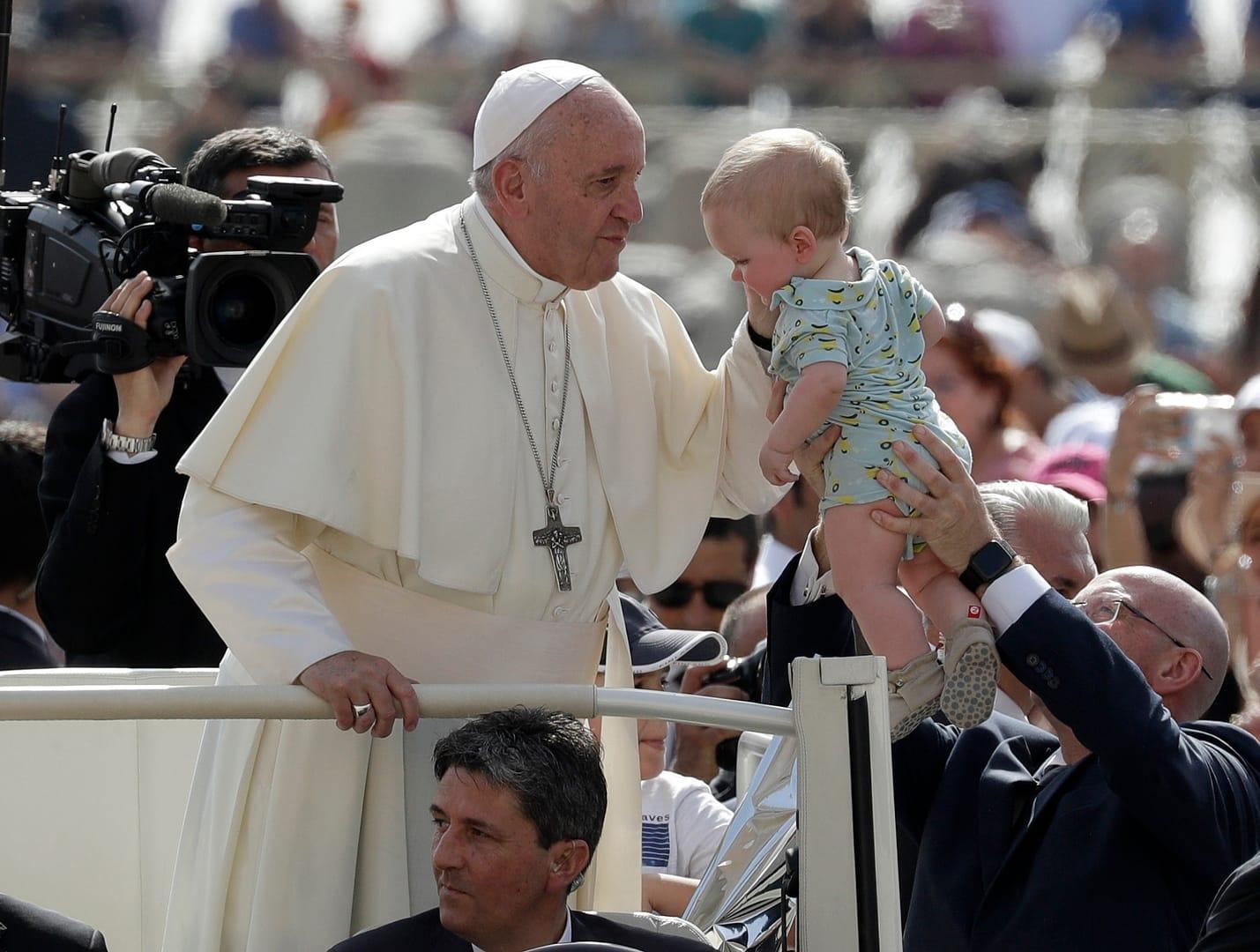MADRID – Pope Francis is responsible for saving at least 30,000 people from drowning in the Mediterranean, according to the founder of an NGO that rescues migrants attempting to travel from Africa to Europe.
This claim was made by Oscar Camps of Proactiva Open Arms during a book presentation on Wednesday in Madrid.
Camps said he was at first critical of the pontiff, until he saw Francis going to the Greek island of Lesbos in 2016, and returning to Rome with three migrant families on the plane.
That was when Camps decided that “he’s one of us,” and set his mind to meet the pope. He did a few weeks later, presenting Francis with an orange life vest that belonged to a Syrian girl whom the Spaniard couldn’t rescue. The pope then took the life vest to an audience with a group of children, and spoke about the girl who died — it has now become the symbol of the Vatican’s special office for migrants and refugees.
According to Camps, Francis opened the section, that is directly under his supervision, after he explained to the pope what was happening in refugee detention centers in Europe.
Since then, the two have remained close, with Francis even celebrating a private Mass for 70 of the people who work with Camps.
The book presentation was for Eva Fernández’s El Papa de la Ternura (“The Pope of Tenderness”). Fernández is the Vatican correspondent for COPE, the radio station of the Spanish bishops.
The journalist has asked Francis to visit the migrant detention camps in Spain many times, but Camps said such a trip is unlikely unless the Open Arms ship is allowed to leave its Spanish port. it’s been prevented from leaving by the authorities.
“And we’ll invite him to make the journey on the boat,” Camps said, only half-jokingly, answering a question by Paloma Garcia Ovejero, former papal deputy spokesperson, about a potential papal trip.
Last year, Italian prosecutors opened an investigation against Open Arms, claiming the rescue missions were a façade and that they were instead working with human traffickers off the coast of Libya. The case is still ongoing.
In addition to Camps, who wrote the book’s epilogue, Cardinal Carlos Osoro of Madrid and Italian journalist Andrea Tornielli, who recently joined the Vatican’s communication team as editorial coordinator, were also at the presentation.
Speaking about the pope, Fernández said that Francis has “marked for us a path, a revolution, of tenderness,” and he’s done so through the countless gestures he’s made since the beginning of his pontificate.
“Francis’s ministry is as simple as it is revolutionary: God not only loves us, but loves us with tenderness,” explained Fernández, who highlighted how this daily teaching of the Argentine pope shows that “to love is not complicated, we are the ones who complicate things.”
“The pope does not have a strategy, it is like he seeks the reform of the heart, of each person, from you to you,” she added.
Garcia Ovejero, currently the London correspondent for COPE, said that El Papa de la Ternura is not “a book to recommend, but to prescribe.”
One of the questions she asked the panelists was what gesture by the pope has helped them see this “tenderness” the book describes.
Osoro spoke of two situations that “reached my heart:” One of them was Francis’s “shame and pain due to [sexual] abuse,” and then an encounter with an Italian boy who was set to ask the pope a question, but couldn’t do so in public, as he was crying. On noting this, the pontiff told the child to approach him and whisper his question to him. The child wanted to know if his dad, who’d recently passed away, could still be in heaven even though he was an atheist. In short, the pope said “yes.”
According to the cardinal, Francis evangelizes “with his life, through attraction, by contagion and at times delicately marking the path” and many of the gestures described in the book’s 14 chapters are “some of the things that attract non-believers.”
Osoro acknowledged that some of the gestures of the pope are often misunderstood by people within the Church, who can even be angry because they don’t agree with Francis. But reaching those in the peripheries, he argued, is “the mission of Francis.”
One of those non-believers attracted by Francis is Camps, who said the pontiff “reconciled me with my morality” by flying refugees to Rome.
“The pope is the only head of state who raises his voice for this cause,” Camps argued, explaining how Francis asked him at one of their meetings if he was a Catholic: “Yes, I am, but I do not practice.” The pope fought him on this, telling him “you do practice, but in the manner of the 21st century.”
Before diving into the book, Tornielli spoke of Fernández’s “sympathy and professionalism,” always with a smile on her face and a “humble” attitude, an opinion that was met with nodding heads throughout the packed auditorium.
Tenderness, he said, “has evangelical roots: It’s the way to evangelize today and the key to understand Francis, who always presents us a God who, instead of judging us, gives us a hug.”
Follow Inés San Martín on Twitter: @inesanma
Crux is dedicated to smart, wired and independent reporting on the Vatican and worldwide Catholic Church. That kind of reporting doesn’t come cheap, and we need your support. You can help Crux by giving a small amount monthly, or with a onetime gift. Please remember, Crux is a for-profit organization, so contributions are not tax-deductible.















